Recently, many parents sent messages to clove mother backstage, asking [is flu coming again? ]
In the group of mothers where the old editor was located, many mothers complained incessantly, saying that [B-flow was fierce, not only were all the children recruited, but some primary schools even closed the whole class].
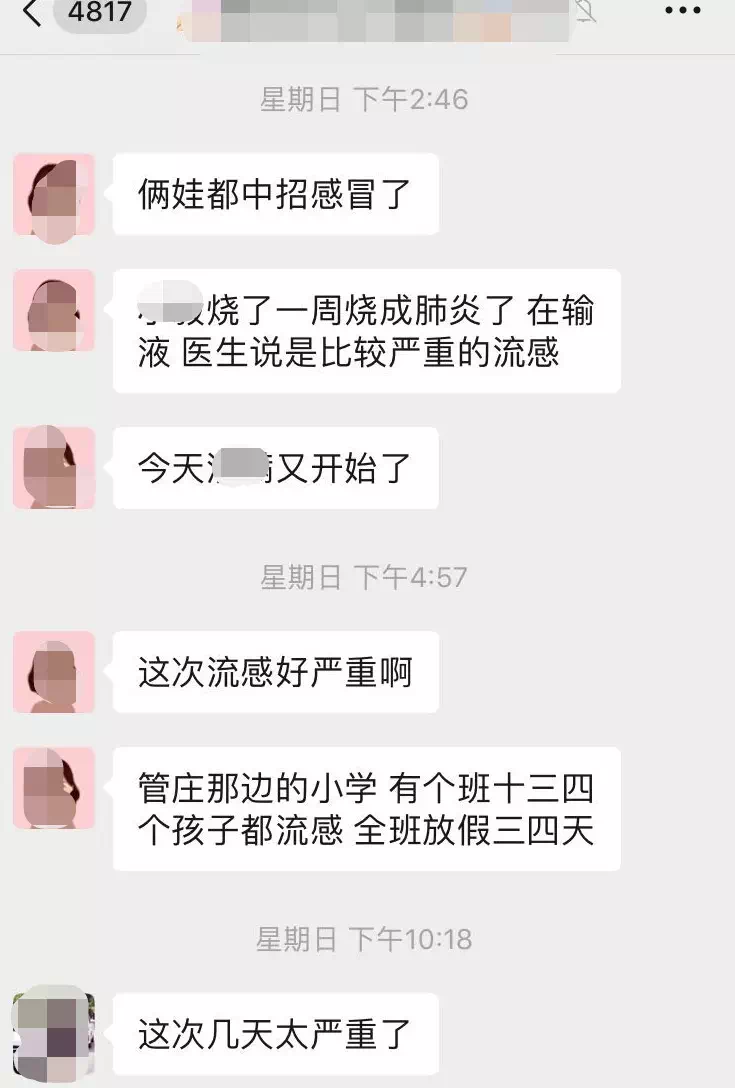
Under 2 years old is a high-risk group, cannot relax vigilance
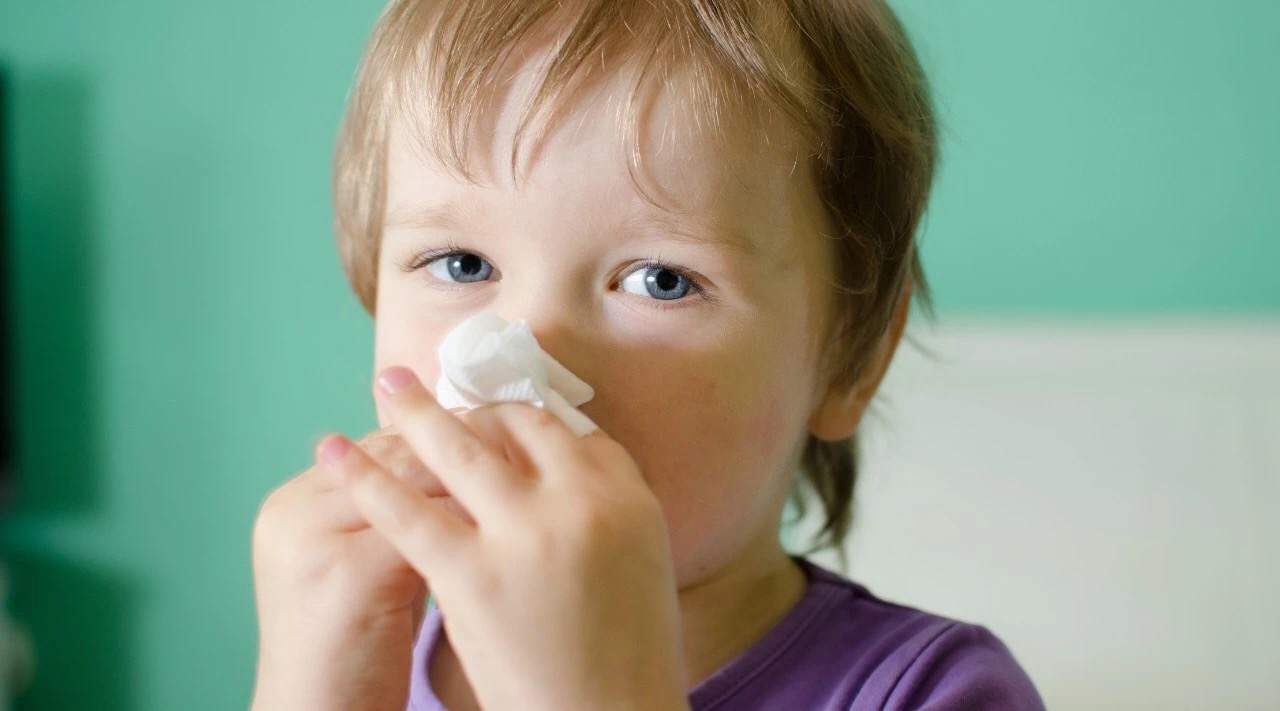
Infants, especially those under 2 years old, are more likely to develop into severe cases, which will lead to complications such as myocarditis, otitis media, pneumonia, etc. Parents need special vigilance.
If the child only sneezes, runny nose and other nasal symptoms are obvious, there is no fever or fever of about 38.5 ℃, and the mental state is good, this time it may be the common cold, not the flu, just have a good rest at home.
However, if there are four other conditions besides sneezing and runny nose, it is likely to be flu:
Children have a fast fever and a high fever. Their body temperature is above 39 ℃, and it is difficult to reduce fever by taking antipyretic drugs.
The child is in poor condition, headache, body soreness and fatigue, and the baby is manifested as listlessness or abnormal dysphoria.
Children may have vomiting, diarrhea and other symptoms;
Other family members or kindergartens have suspected flu patients.
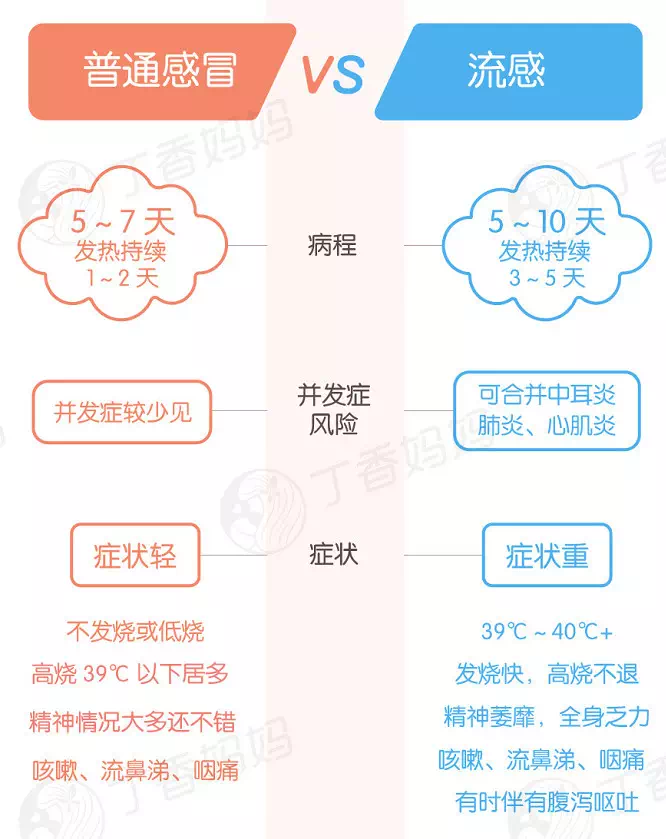
Once the child is suspected to have flu, it is recommended to go to the hospital for flu virus screening as soon as possible.
Children are diagnosed with influenza, remember 4 nursing common sense
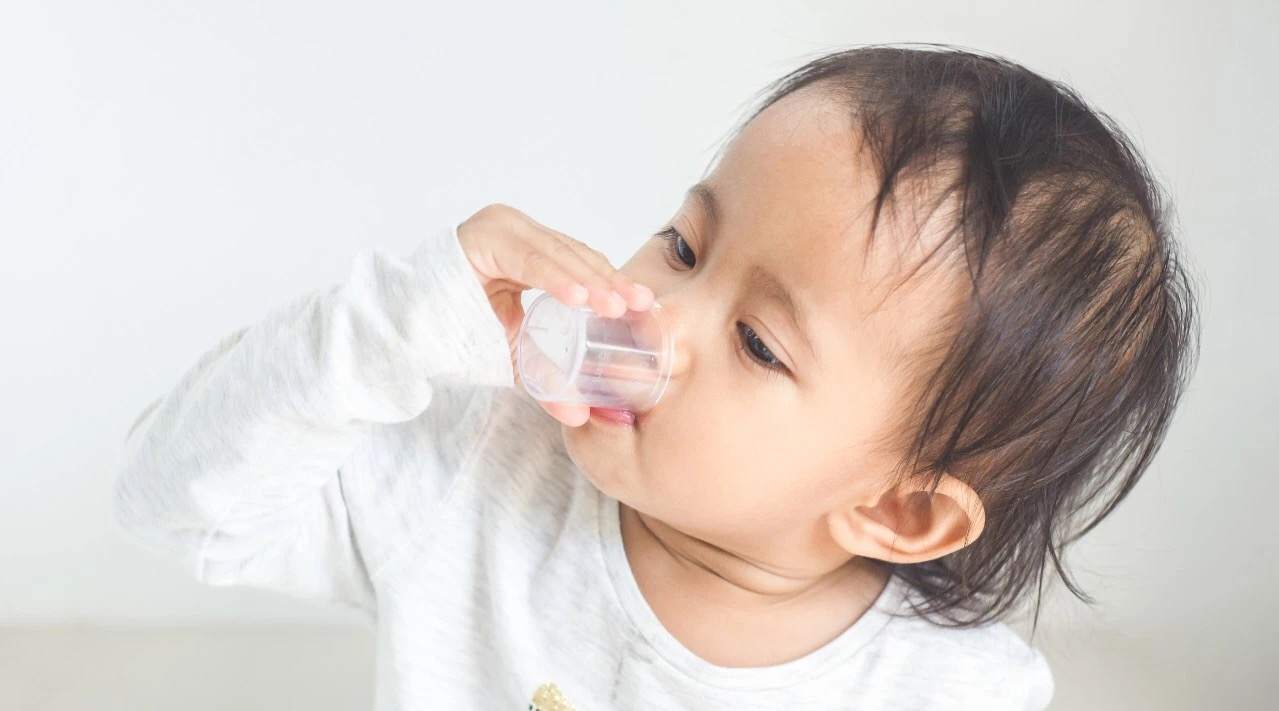
1. Antiviral therapy: oral oseltamivir
If the child is diagnosed with influenza, oseltamivir can be taken orally for treatment.
Oseltamivir is available in two dosage forms, granules (15 mg and 25 mg) and capsules (75 mg).
Children aged 1 year old and over can take it according to the instructions. Children under 1 year old are recommended to take it according to the doctor’s advice.
It should be noted that the recommended course of treatment for taking medicine is 5 days, and do not stop using it at will.
If the child vomits seriously after taking the medicine, he can eat some food to relieve the lower gastrointestinal pressure before taking the medicine.
2. Fever Care: Take Ibuprofen or Acetaminophen
Take orally once according to the dosage, and the fever will stop immediately.
Acetaminophen can be used for children over 2 months old, ibuprofen can only be used for children over 6 months old, and it is best to consult a doctor before taking it.
Generally, it is not recommended to use the two antipyretics alternately.
At the same time of using antipyretic drugs, you can also drink more water and reduce the cover according to the situation of your child, thus helping to cool down.
3. Avoid: Don’t give your child other antiviral drugs or antibiotics without authorization,
The medicine does not suit the disease, not only does it not cure the disease, but it is easy to harm the child.
Be sure to follow the doctor’s advice and use drugs rationally!
4. Home Care: Pay Attention to Diet and Isolation
Increase liquid intake during illness of children; Make something easy for your child, but don’t force him to eat. Both children and other family members should wash their hands frequently. The room is well ventilated.
It is also very important that as long as there is one person in the family who has been diagnosed with influenza, it is best to isolate and be cared for by a special person, and all the staff should wear masks and change them every day to avoid cross infection, especially for families with two treasures.
In the face of influenza, prevention is more important than treatment.
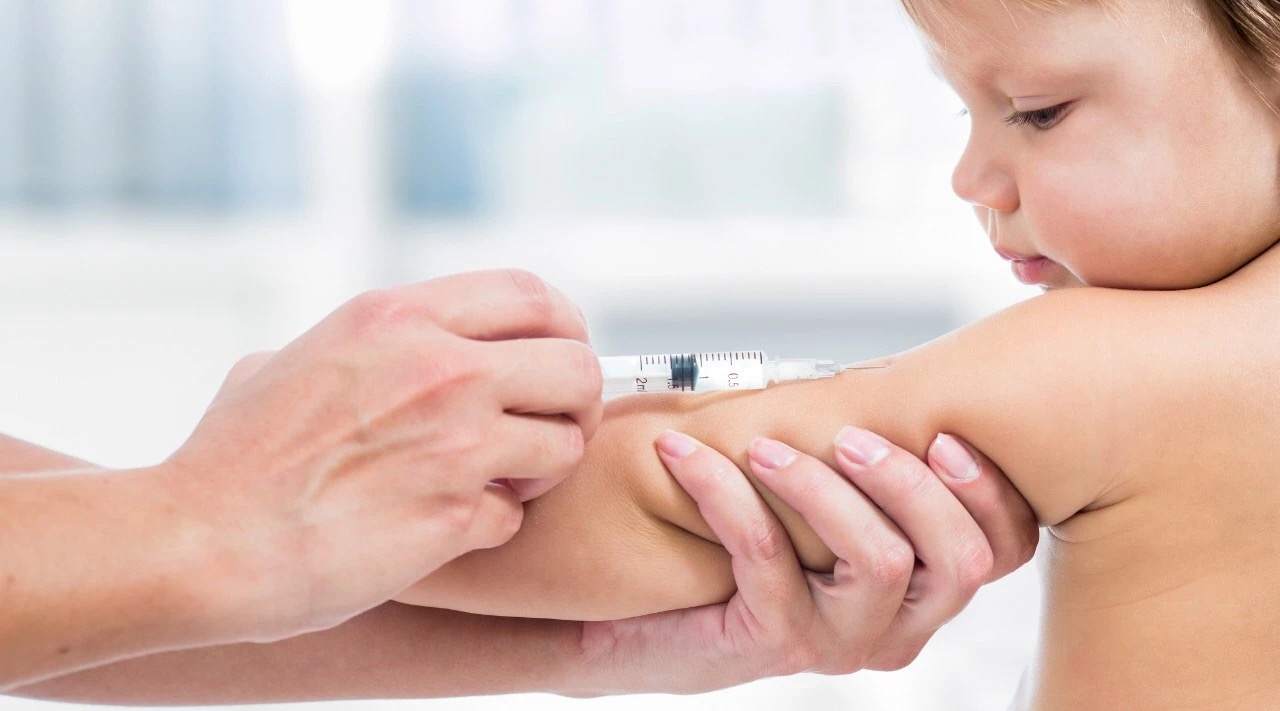
1. Influenza vaccination
Babies can be vaccinated against influenza over 6 months old. When children under 8 years old are vaccinated for the first time, the protective effect of 2 doses (the interval between 2 doses should be ≥ 4 weeks) is better than that of 1 dose, but the specific vaccination procedure also needs to refer to the vaccine instructions.
Influenza viruses may vary from year to year, so it is recommended to vaccinate children every year, and direct dependents are also recommended to vaccinate.
However, the supply of influenza vaccines is usually from October to March of the following year, and the vaccine may not be available now.
However, the old editor still wants to say that when the vaccine comes on the market, it must be vaccinated in time! Because it is the most effective means of prevention.
It is suggested that everyone should pay attention to the information of vaccines around October. When the flu outbreak broke out last year, vaccines were hard to find.
2. Oseltamivir can be used as a drug to prevent
Oseltamivir is one of the drugs approved by FDA (U.S. Food and Drug Administration) for the prevention and treatment of influenza in children.
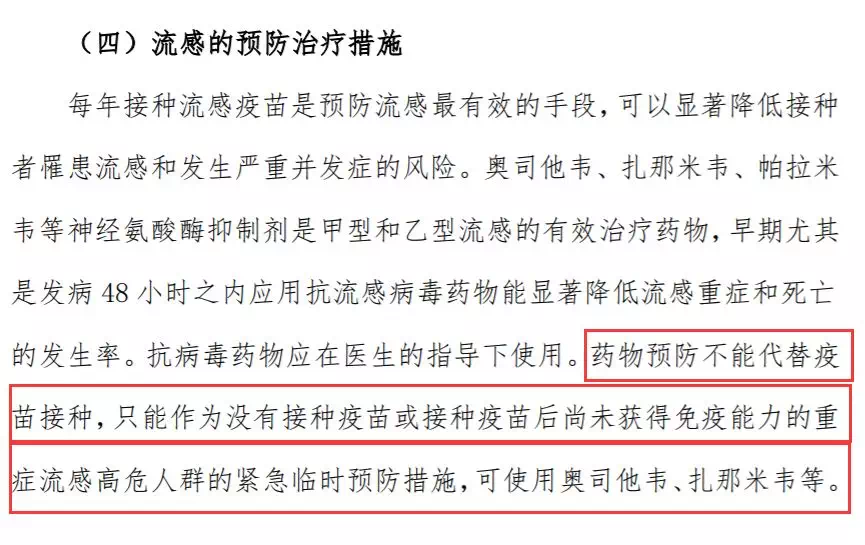
However, two conditions need to be met at the same time before oseltamivir is recommended for prevention:
· Children in the range of high-risk groups who have not been vaccinated against influenza or have been vaccinated for less than 2 weeks (protection has not yet been formed)
· Contact with people suspected of influenza, or recent visits to public epidemic sites
3. Go less to densely populated areas.
Cough, sneeze discharge secretions and droplets can infect influenza virus. During the period of high incidence of influenza, try not to take children to crowded and closed places with bad air. If you have to go, you’d better wear masks, especially now the May Day holiday is approaching.
4. Wash hands frequently with running water, wash and wash
Wash your hands with running water, not in a basin. Wash your children’s hands after going to the toilet, before eating, or after going home.
Influenza is the general trend. Let’s stick to our children’s final health together.
